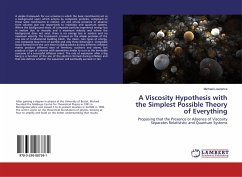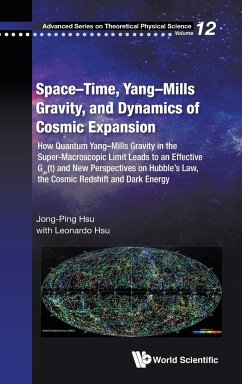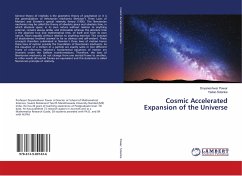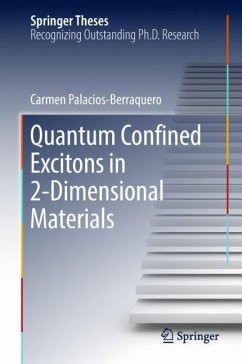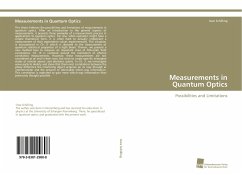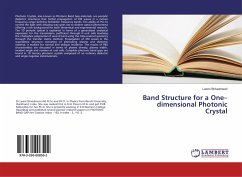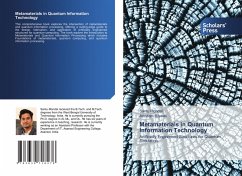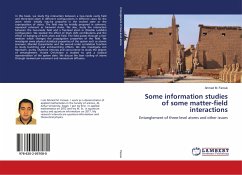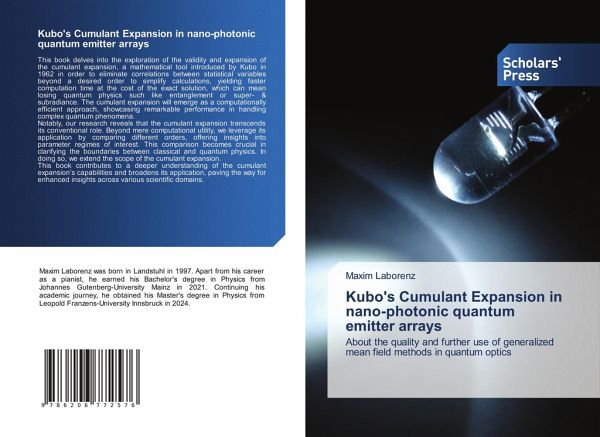
Kubo's Cumulant Expansion in nano-photonic quantum emitter arrays
About the quality and further use of generalized mean field methods in quantum optics
Versandkostenfrei!
Versandfertig in 6-10 Tagen
34,99 €
inkl. MwSt.

PAYBACK Punkte
17 °P sammeln!
This book delves into the exploration of the validity and expansion of the cumulant expansion, a mathematical tool introduced by Kubo in 1962 in order to eliminate correlations between statistical variables beyond a desired order to simplify calculations, yielding faster computation time at the cost of the exact solution, which can mean losing quantum physics such like entanglement or super- & subradiance. The cumulant expansion will emerge as a computationally efficient approach, showcasing remarkable performance in handling complex quantum phenomena. Notably, our research reveals that the cu...
This book delves into the exploration of the validity and expansion of the cumulant expansion, a mathematical tool introduced by Kubo in 1962 in order to eliminate correlations between statistical variables beyond a desired order to simplify calculations, yielding faster computation time at the cost of the exact solution, which can mean losing quantum physics such like entanglement or super- & subradiance. The cumulant expansion will emerge as a computationally efficient approach, showcasing remarkable performance in handling complex quantum phenomena. Notably, our research reveals that the cumulant expansion transcends its conventional role. Beyond mere computational utility, we leverage its application by comparing different orders, offering insights into parameter regimes of interest. This comparison becomes crucial in clarifying the boundaries between classical and quantum physics. In doing so, we extend the scope of the cumulant expansion.This book contributes to a deeper understanding of the cumulant expansion's capabilities and broadens its application, paving the way for enhanced insights across various scientific domains.





